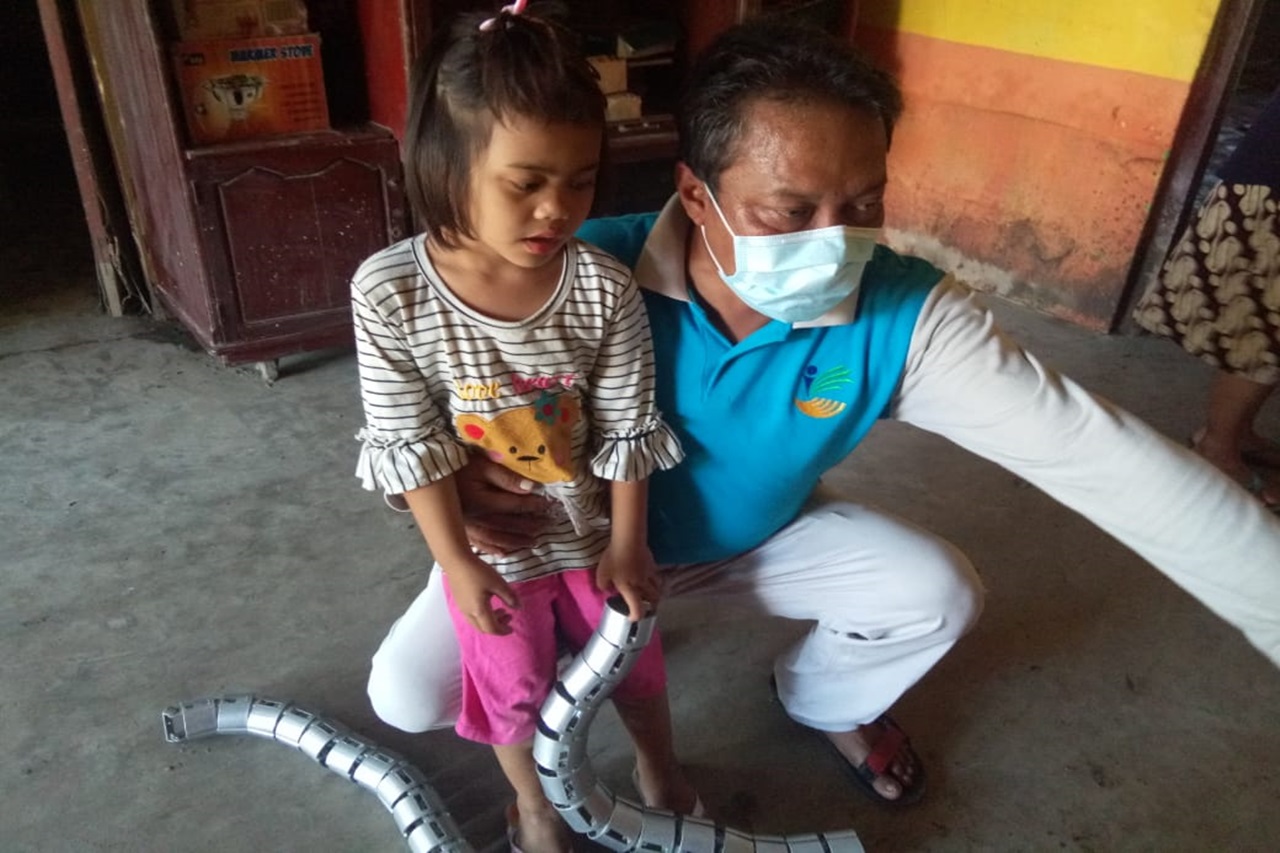Ministry of Social Affairs Strengthens the Handling of Flood Disaster Victims in East Sumba through Psychosocial Support Services

EAST SUMBA (16 April 2021) - The Ministry of Social
Affairs through the Directorate of Social Rehabilitation for Persons with
Disabilities and the Bandung "Wyata Guna" Disability Center continues
to strengthen the handling of flood victims due to Seroja Tropical Cyclone in
East Sumba Regency, East Nusa Tenggara.
Following the direction
of the Minister of Social Affairs, Tri Rismaharini, post-disaster management is
not only assisting, but also helping with Psychosocial Support Services (LDP),
and Trauma Healing for disaster victims.
Based on this, the Wyata
Guna Bandung Disability Center sent the team to the location to provide
Psychosocial Support Services (LDP) to victims to reduce the feeling of trauma,
anxiety, hopelessness faced by disaster victims in Kambera, Waingapu and
Kanatang Districts, so that they are expected to have the enthusiasm to carry out
daily activities normally and return to productivity, and have a strong belief in
dealing with post-disaster problems.
One of the locations is
in Waingapu Subdistrict, the LDP Team of Wyata Guna conducted an assessment of
Karel Kanda (65 years), a person with visual sensory disability whose house was
damaged by the storm, and provided psychosocial reinforcement to the persons
concerned and their family.
The next location is in
Kanatang Subdistrict, the Team also conducted a survey and assessment of poor
persons with visual sensory disabilities, and succeeded in tracking down Paulus
Pati Lianda (50 years) who lives in a hut, poor, and has never got social
services. As well as Gabriel Ngabi Ranja Rua (33 years), whose roof of his hut
was damaged by a wind storm. In Kanatang there are also persons with visual
sensory disabilities who live in poverty named Andreas Lu Takandewa (50 years)
and Roy Ana (45 years).
The team also conducted
identification and assessment to deepen information on problems, needs, and
intervention plans. Meanwhile, in Kambera Subdistrict, Psychosocial Support
Services (LDP) were provided to flood victims' families.
 English
English
 Bahasa
Bahasa
